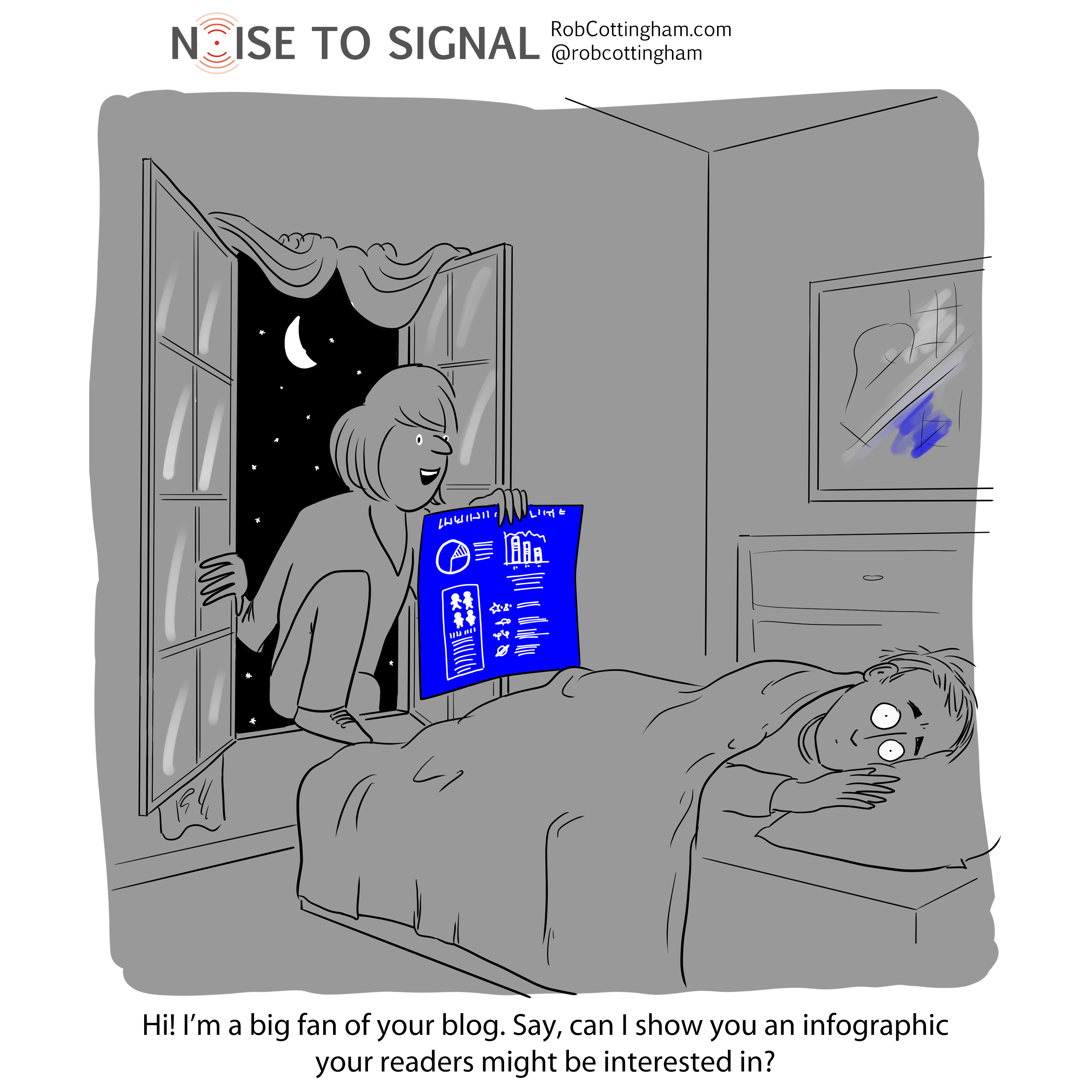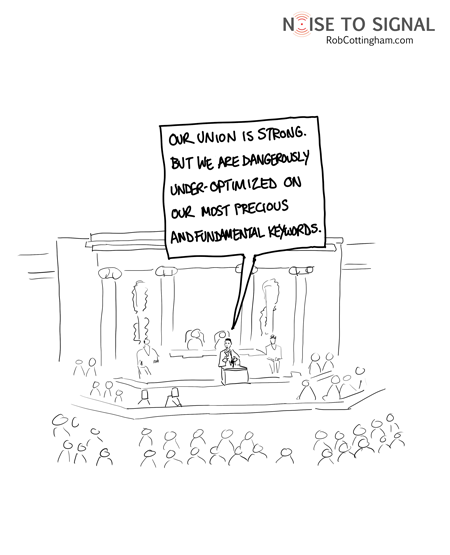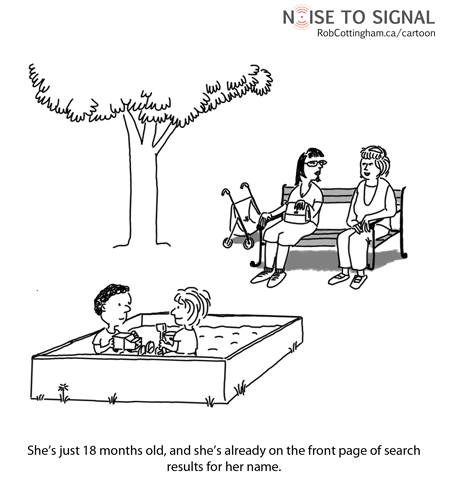Oh, pitches. You get so many as a blogger, yet it’s been so long since I’ve had a good one. And these days it’s rarely even “Here’s an interesting angle on a cool topic”; instead, the pitch is “Post my content” or “Post a link to my content.”
And the stuff is consistently awful content-farmed dreck, created purely to generate leads or sway search engine algorithms—with exactly the amount of heart and soul that implies.
Sometimes it’s a guest post they want me to run, with a few keywords including a link to some site they’re promoting. (“We have posts on a wide range of topics,” they’ll sometimes say. If I want to feel good about humanity, I’ll sometimes pretend that’s their way of apologizing for not researching what my site is actually about.)
Lately the MacGuffin of choice is an infographic, one they’re just so sure my readers will find fascinating. True, I don’t blog about student debt financing and probably never will, but they assure me you’ll be riveted by their collage of stats, charts and stock illustrations.
The high-water mark for pitches so far was one that came to me in my capacity as The NOW Group’s Director of Integrated Communications. “As a Director of Integr, we’re sure you’ll be interested,” the email gushed. Apparently the spammer’s database allocated only a miserly 18 characters to the field “sucker’s job title”.
(Let me make something clear. I take integr very, very seriously. I studied in the School of Integr at Carleton Univer, and being Director of Integr is the fulfilment of a lifelong dr. So kindly don’t use it with such casual disregard, please and thank-you.)
Here’s the sad truth. Unless it’s directly related to the stuff I write about, and unless it’s really useful to the folks who read my blog, I am never going to link to your infographic. Never.
And in response to the spammers’ “Why not share this with your readers?” I offer the same answer Arthur Dent once did: because I want to keep them.







